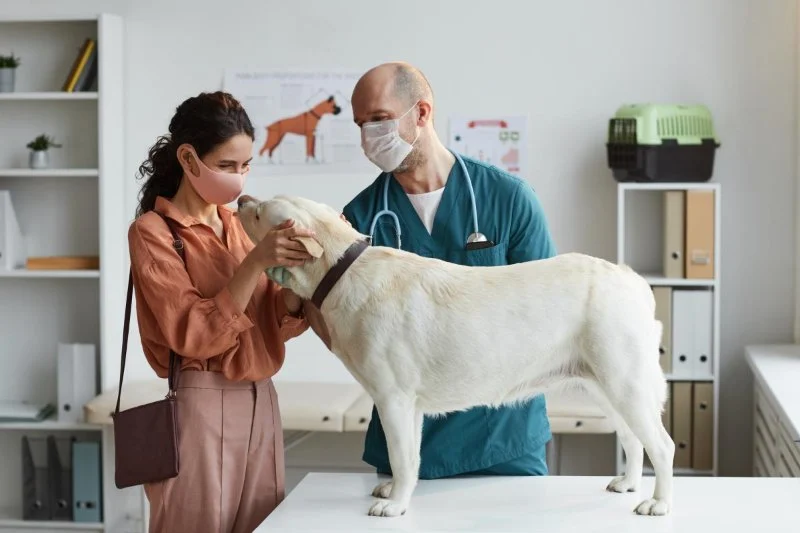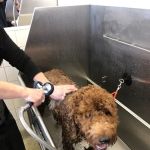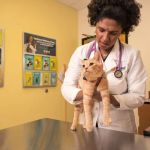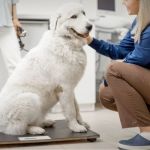
Behavioral Cues That Suggest a Vet Visit Is Needed
- Changes in Appetite
- Excessive Sleeping and Lethargy
- Unexplained Aggression or Anxiety
- Digestive Issues and Vomiting
- Difficulty Breathing or Coughing
Changes in Appetite
One of the first signs that your pet may need a vet visit is a noticeable change in their eating habits. If your pet suddenly refuses food or has a decrease in appetite, this could signal underlying health issues, ranging from dental problems to infections. On the other hand, an increase in appetite could also indicate conditions like diabetes or hyperthyroidism. It's essential to monitor their eating patterns closely and consult a vet if the changes persist for more than a few days.

Lawrenceburg Veterinary Clinic
LawrenceburgDearborn CountyIndiana
818 US-50 E, Lawrenceburg, IN 47025, USA
1. Decreased Appetite
If your dog or cat stops eating, it may be due to something as simple as stress, but it could also indicate more serious issues such as gastrointestinal problems or infections. Prolonged lack of appetite should be evaluated by a vet to rule out illnesses or underlying conditions.

Critter Glitter Pet Fashion
BloomingtonMonroe CountyIndiana
118 S Rogers St Suite 5, Bloomington, IN 47404, USA
2. Increased Appetite
When pets begin eating more than usual, it could point to metabolic disorders such as diabetes or a thyroid imbalance. Any sudden or unexplained weight gain should also be examined by a veterinarian.
Excessive Sleeping and Lethargy
Just like humans, pets can get tired or take naps during the day. However, if your pet becomes unusually lethargic, it may be a cause for concern. Extended periods of inactivity or sleeping more than usual could suggest pain, infection, or even conditions like arthritis or kidney disease.
1. Sudden Lethargy
If your pet suddenly starts sleeping more than usual, or shows reluctance to engage in their usual activities (such as walks, playing, or exploring), it could indicate that something is wrong. It’s important to observe whether this lethargy is accompanied by other symptoms like vomiting or limping.
2. Difficulty in Movement
Lethargy can also be related to joint pain or muscle weakness. If your pet is slow to move or hesitant to jump, a vet visit may be needed to check for joint conditions such as arthritis or hip dysplasia.
Unexplained Aggression or Anxiety
Changes in behavior, such as aggression, anxiety, or irritability, can be signs that your pet is experiencing discomfort or pain. It’s important to understand that pets, especially dogs and cats, will often hide pain until it becomes severe. A previously calm pet that starts to show aggression or nervous behavior could be trying to communicate distress.
1. Aggression Towards People or Other Pets
If your pet, who is normally friendly, begins to act aggressively, it may be due to physical pain or discomfort. It could also be a response to fear, anxiety, or an underlying medical condition. Consulting a vet can help identify the cause of this behavioral change.
2. Increased Anxiety or Nervousness
Pets who are anxious may start pacing, drooling, or hide more often. If your pet's anxiety is persistent or worsens, it may signal an issue like separation anxiety, trauma, or even a neurological disorder. A vet can help diagnose the issue and suggest treatment options.
Digestive Issues and Vomiting
Digestive problems are another sign that your pet may need veterinary care. If your pet is experiencing diarrhea, constipation, or vomiting frequently, it’s important to get them checked. Vomiting can be caused by something as minor as a hairball in cats or an upset stomach in dogs, but it can also signal more serious conditions such as poisoning, infections, or gastrointestinal diseases.
1. Frequent Vomiting
Occasional vomiting isn’t uncommon for pets, but frequent vomiting is a sign of concern. If your pet vomits more than once or twice in a short period, or if the vomit contains blood or unusual substances, it’s essential to visit the vet immediately. Vomiting could be a sign of an infection, toxin ingestion, or a more serious condition like pancreatitis.
2. Diarrhea or Constipation
Changes in stool consistency, such as diarrhea or constipation, should also be monitored closely. Diarrhea can quickly lead to dehydration, and if it lasts more than a day, your pet should be seen by a vet. Constipation can cause discomfort and may be due to an obstruction or dietary issue.
Difficulty Breathing or Coughing
If your pet starts wheezing, coughing, or having difficulty breathing, it’s essential to seek veterinary care right away. Respiratory issues can be a sign of infections, heart problems, or respiratory diseases, and they should never be ignored.
1. Persistent Coughing
Coughing in pets can sometimes be a result of allergies or mild irritation, but if the coughing persists for more than a day or two, or if it is accompanied by a nasal discharge, it may indicate a respiratory infection, heart disease, or even lung cancer in some cases.
2. Labored Breathing
If your pet is breathing heavily or showing signs of distress when breathing, this can be an indication of heart failure, pneumonia, or asthma. Immediate attention from a veterinarian is necessary for diagnosing and treating these conditions.







 Magnolia Animal Clinic4.0 (196 reviews)
Magnolia Animal Clinic4.0 (196 reviews) Hollywood Feed4.0 (394 reviews)
Hollywood Feed4.0 (394 reviews) Central Mesa Veterinary Hospital4.0 (89 reviews)
Central Mesa Veterinary Hospital4.0 (89 reviews) North Central Animal Hospital4.0 (711 reviews)
North Central Animal Hospital4.0 (711 reviews) Doyle Veterinary Center, PLLC4.0 (214 reviews)
Doyle Veterinary Center, PLLC4.0 (214 reviews) Whiteland Animal Clinic (Our New Name: Animal Clinic Whiteland Greenwood)4.0 (406 reviews)
Whiteland Animal Clinic (Our New Name: Animal Clinic Whiteland Greenwood)4.0 (406 reviews) How AI & Data Are Transforming Preventive Pet Health Care
How AI & Data Are Transforming Preventive Pet Health Care Monitoring Pet Weight: Tools & Strategies for a Healthy Pet
Monitoring Pet Weight: Tools & Strategies for a Healthy Pet How to Spot Early Signs of Pet Kidney Disease
How to Spot Early Signs of Pet Kidney Disease Handling Pet Poisoning: What to Do If Your Pet Ingests Something Toxic
Handling Pet Poisoning: What to Do If Your Pet Ingests Something Toxic Essential Vitamins & Minerals Pets Need for Healthy Living
Essential Vitamins & Minerals Pets Need for Healthy Living Best Practices for Pet Grooming Frequency by Breed: Keeping Your Pet’s Coat Healthy
Best Practices for Pet Grooming Frequency by Breed: Keeping Your Pet’s Coat Healthy